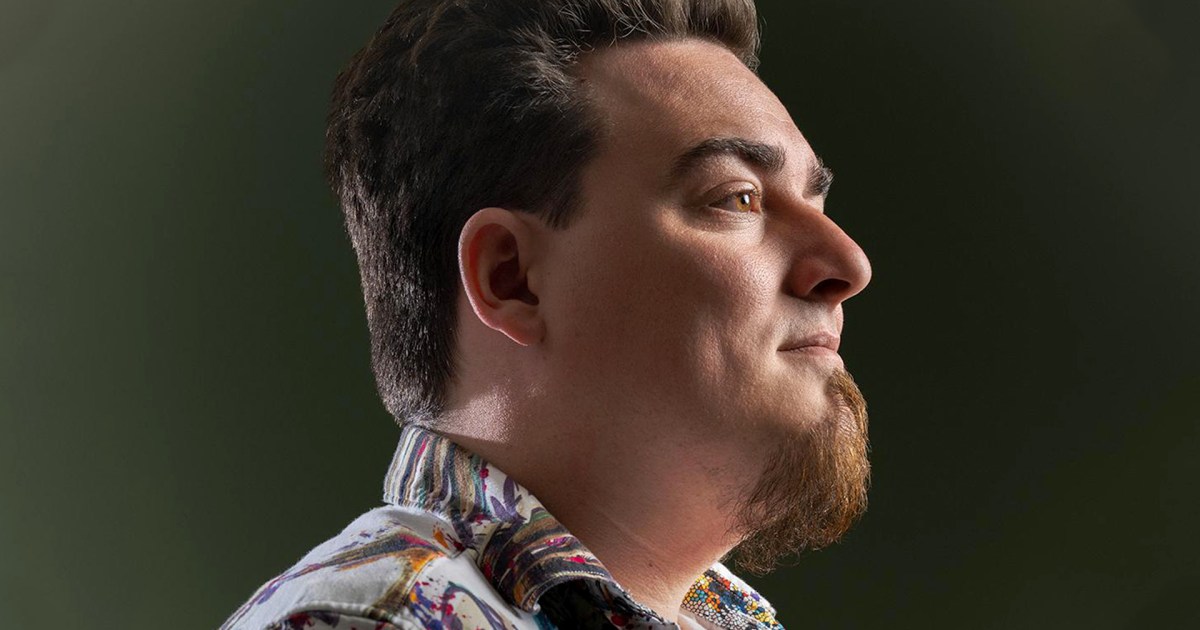After being expelled from Silicon Valley as a Trump supporter, the only time that VR genius Palmer Loki felt vindicated was when his $8 billion defense technology company Anduril armed Ukraine And building the weapons of the future even before the Pentagon knew Kyiv wanted to deal with them.
And the American newspaper Forbes published a report by Jeremy Bojsky, in which he talked about the billionaire founder of Andorel Corporation, Loki, who made his fortune by selling his virtual reality startup Oculus VR to Facebook for two billion dollars in 2014.
The writer describes Loki as a self-taught technological miracle, and she will turn 30 years old next September and move - according to Loki himself jokingly - from the genius child to the "brilliant man". Currently, some investors are preparing to pump another billion dollars into Andoril, to rise Total to $1.8 billion since 2017. (Locky owns at least 11% of the company, and when you add to his Facebook windfall, his current net worth rises to $1.4 billion, and this will rise after the last round closed in June.) which is expected to inflate Andoril's value by 70% to $8 billion).
The writer points out that an artificial intelligence program called “Lattice”, which Andoril considers the heart of its technology, can track any truck and determine its location and type, even if this truck disappears behind a hill, it will take off a black unmanned helicopter called “Ghost” (Ghost) to keep it in plain sight, and if Lattis decides to classify this knee and its pilot as 'suspicious', a metal box will open and a powerful quadcopter called the Anvil will fly at dizzying speed, with only one job to hit the target and destroy it.
Loki won a ton of press attention (including a Forbes cover photo) as a teenage VR pioneer, but three years after he sold Aculus VR to Mark Zuckerberg, he was fired by Facebook with fanfare for his support of Donald Trump in 2016 presidential election
The writer explains that Loki, after losing friends who criticized him as a warmonger, suddenly feels innocent, in the wake of the Russian invasion of Ukraine, as Anduril has systems on the ground in Ukraine to help it in its war against Russia, noting that some people contact him to apologize "They now realize that it is really important for the United States to have better weapons," he says.
The way Loki sets out to build these weapons is key to understanding what sets his company apart. Andorell, which generated nearly $150 million in revenue last year, has developed much of its technology at its own expense, a high-stakes bet that shows how It is usually employed by military contractors.
Rather than waiting for the Department of Defense to launch a multi-year process to determine technical requirements and invite bids to develop prototypes, Anduril goes ahead and builds weapons and surveillance systems that it believes the government will want as long as it works. Something, we'd be the first to think of."
And the writer reveals that Andorell has two projects that have not been talked about before, namely, a fast-armed drone, which Lockey says is intended in some cases to replace piloted fighters in the task of intercepting those violating the air zone, and then there is a large surveillance drone designed to launch and land vertically (making it not need a runway) and flying long distances independently, which makes it seem suitable for large areas, as the writer stresses that there is no official request from the Pentagon for either of them currently.
There is also a complex simulation tool that integrates Lattis with a video game engine from Carbon Games, a studio acquired by Andorell in 2019, with the purpose of allowing the Department of Defense to run thousands of "what if" scenarios. Quick insights into how conflicts occur, which can be viewed using virtual reality, and can be used through goggles or on regular screens.
The writer says about Loki that he studied at home under the care of his mother in Long Beach, California, and took his first engineering lessons while working in cars with his father.
Loki began his career by building things like high-powered lasers and coil guns that fire high-speed projectiles using electromagnets, and in his mid-teens he upgraded old gaming consoles with miniature electronics to make them portable.
He also created the virtual reality glasses "Oculus Rift" when he was only 16 years old, which caught the attention of Mark Zuckerberg.
The writer goes on to explain that while Loki was on Facebook, he messed about with even more horrible things, he built a jet engine in his pool, and he tried making rocket shoes.
In 2017, Andorell made a sale to the Customs and Border Service that includes guard towers that automatically detect people and vehicles crossing the border illegally, and exempts agents from many routine patrols.
In 2020, the department awarded Andorell a contract worth up to $250 million, and by February CBP had 176 towers scattered across the Mexican border.
And last January, Anduril recorded its largest operation to date, a contract to take charge of US Special Operations Command's drone defenses that could be worth about $1 billion over 10 years. The Pentagon is keen to link all of its weapons and surveillance systems together to create and coordinate a unified view of the battlefield from afar, while simultaneously resisting hacking and jamming. The program is called Joint Domain Command and Control, or JADC2. JADC TWO).
Andorell and others, including California-based Blantyre and Redwood City, are vying for tens of billions of dollars in potential spending.
In a 2020 Air Force experiment, Andorell integrated radar with its sensor towers to detect incoming cruise missiles and automatically direct targeting data to multiple weapon systems, including the F-16, to shoot them down. Remarkably, the system required only one pilot to supervise.

